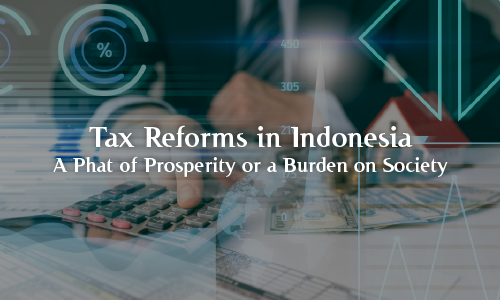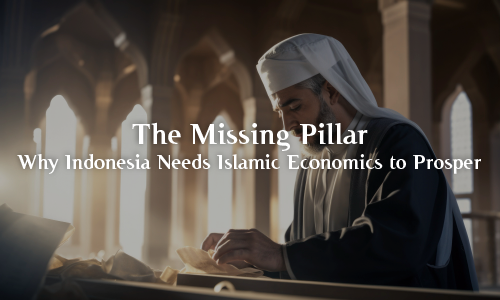
Summary: This article examines Indonesia’s 2025 tax reform policy from the perspective of Islamic economics, analysing its potential to enhance or undermine social welfare. The reform includes a rise in the Value Added Tax (VAT) from 11% to 12% on luxury goods, progressive changes to income tax (PPh 21), and a 0.25% tax on gold transactions (PPh 22), alongside regional adjustments to property tax (PBB-P2). Through the framework of maqāṣid al-sharī‘ah, Islamic fiscal ethics emphasize not only tax rates but also governance, purpose, and distribution of revenue. Drawing upon classical and modern Islamic scholars such as Abu Yusuf, al-Ghazali, and Ibn Khaldun, the article argues that just taxation must be proportional, publicly beneficial, and transparently managed. Comparative insights from Malaysia and the United Arab Emirates underscore the importance of zakat-tax integration, fiscal flexibility, and efficient public spending. The article also advocates for participatory budgeting, social audits, and measurable return-on-tax (RoT) frameworks to strengthen public trust and accountability. Ultimately, it concludes that tax policy, when designed and implemented ethically, can serve as a legitimate tool for achieving inclusive prosperity and fiscal justice in alignment with Islamic economic principles.
Introduction
Indonesia has entered 2025 with a sweeping tax reform initiative. The government has revised the Value Added Tax (VAT) rate from 11% to 12%, primarily targeting luxury goods and services. At the same time, Article 21 of the Income Tax (PPh) law has been revised to reflect a more progressive structure, and transactions involving gold bars and jewellery are now subject to Article 22 Income Tax at a rate of 0.25%. Meanwhile, at the regional level, the Rural and Urban Land and Building Tax (PBB-P2) continues to be regulated locally, with several provinces implementing exemptions for low-value properties.
This new tax package has raised a fundamental public question: will it promote social welfare, or merely intensify the burden on citizens? To evaluate this, one must assess not only the fiscal policy’s substance but also its implementation. In Islamic economics, fiscal justice is not solely determined by the rate imposed but by its purpose and governance. This…

















